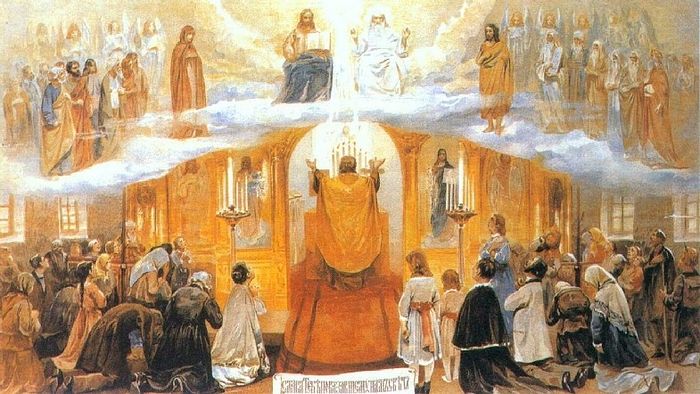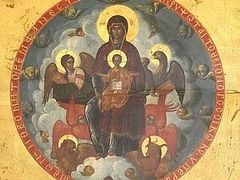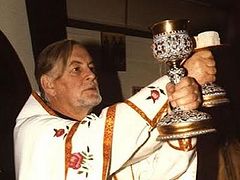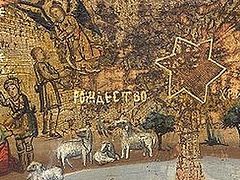At the washing of the disciple’s feet, Our Lord gave us an example to live by. An example I have given to you: That just as I have done, you should do also (John 13:15). What a heavenly prothesis is this: Just as we can share no part in the living God without our transparency to His personal healing work in us, we can share no part in our fellow man without accepting Christ even through him, the stranger, bone of my bones, and flesh of my flesh.
On that tearful evening of the Eucharistic Supper, Our Lord laid down in Himself the ultimatereality of spiritual agape: we in the Church are all united in His Body, whether we live or die. What it means to be a person in Christ is to be eternally formed by this membership in the living communion of God as our hearts are enlarged to be transformed in Him, to be open to the coinherence of the Holy Trinity within us, and through each person, simultaneously, freely, and dynamically.
Without this humble transparency to the free spiritual love which pours out in immeasurable rivers from the living God, there can be no spiritual communion between men on earth, or in the life to come. I remain alone, shut up in myself, confined and tied up by my own arms in the hell of aloneness, bereft of love. Only divine grace can save us from such a hell. The communion of man in God and neighbor occurs at a mystical depth of inexhaustible comprehension, which transcends all our worldly boundaries within which we consider exclusively our own friends and family circle.
Here at the cross, God is in all, through all. Divine sacrifice blameless and victorious, an unknown thief on the left embraced as beloved son in a moment of repentance. When we arrive before the Judge with all the flock of our Lord, will our heart be open to rejoice in the glory of the lost son, the unknown stranger and thief who arrived at the eleventh hour, while he is embraced alongside us by our common Father?
Spiritual love in the mystical communion of the Church means that we pray to our common Father as Our Lord prayed in John 17: “That all may be one, as you Father, are in Me, and I in You.”
Such is the way and passage of the Liturgy. I become unknowingly ignorant of any life without God: I experience my life in yours, and your life in mine. We become spiritually connected in Christ, even from thousands of miles away, and suddenly we behold that God is the foundation of our being. I behold you as person: good, beautiful, holy. God reveals His love for man. Your pain and your sins are mine own, your forgiveness is my own, as well as your virtues and vices. Salvation is communion with you, for I can’t be saved without you. You are my love, my beauty, my sweetness. We are not strangers, for we have one common Father. Here there can be no place for pride or egotism. How can such things exist, and I live, simultaneously?
The gift of spiritual love and communion in the Holy Trinity which is given in the Divine Liturgy is not restricted by space or time, nor even by our shortcomings. When the Holy Spirit offers us this gift, life becomes liturgy, and liturgy becomes life. We behold Christ in each unique and unrepeatable person, just as we behold the fullness of the Church every time the Eucharist is elevated and offered at the Divine Liturgy.
We pray secretly and spontaneously in our heart with spiritual pain for all people around us, wherever we are, regardless of distance. We peer with awe into the greatness of the Church, the possibility of spiritual communion and spiritual agape between persons even within the shadow of foreign languages, the majestic communion of our spiritual family all around the world, the members of which may not even yet know the God Who is calling them to the knowledge of His Truth.
As a certain Athonite Father of Grigoriou has described the opening of the heart in the liturgical life of the Orthodox Christian: “All of our inner borders are broadened.” Heaven reaches down to earth, and we long that all creation might come to hear those final sweet words of the Risen Lord beside us: Enter into the joy of your master (Revelation 22:3).
Used with permission, from the weekly digest of Cleanse Me By Repentance, a Lenten devotional collection prepared by St. Tikhon’s Seminary, authored by its faculty, students, and alumni.
For more information on St. Tikhon’s Seminary or to visit, please write info@stots.edu.




